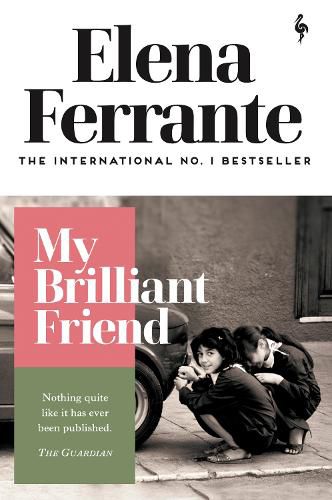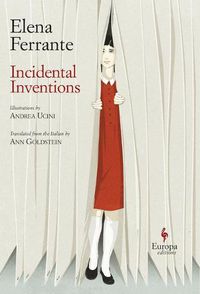Why you should read Elena Ferrante
Here’s a collection of testimonials from Readings staff who have read, and loved, Elena Ferrante’s Neapolitan novels: My Brilliant Friend, The Story of a New Name and Those Who Leave and Those Who Stay.
It’s no hyperbole to say that My Brilliant Friend, The Story of a New Name and Those Who Leave and Those Who Stay are collectively one of the greatest literary undertakings I’ve ever had the pleasure of reading.
– Gerard Elson, Bookseller
I thought the level of detail into their lives would wear me down – that the conversations (imagined or not), the clothes they wear, the places they work would become repetitive and tiring. It did not. Like a crack addict, I went under. I read whenever I could: I read while waiting in the car for my teenagers, I read while waiting for water to boil and I read into the wee hours of the eve. I read all three titles in less than a week, and am now working hard to overcome my addiction by dedicating myself to new books set far, far away from Italy. To aid in this recovery I need to read stories that move from the political fights, the two-bit gangsters and the depression of women righting the wrongs of the past and asserting their position for themselves and the generations they create. I may turn to fantasy.
Ferrante’s books explore the underside of being a friend, wife and mother. Through the friendship of Lena & Lila from the 1960s toward the current day, the reader is exposed to a very personal view of women’s place in business, education and the arts. These books are written with such searing honesty that I sometimes want to look away from the page.
Like Karl Ove Knausgaard and Javier Marías, Ferrante is relentless in her questioning of the self. She writes with an intensity that is almost gothic, though her outlook and her feminism are radically contemporary.
– Jess Au, Bookseller
I read all three Ferrante books in a row over my holidays (I’m currently halfway through the third one). They are everything I was promised, and more. Recently I listened to a podcast in which a critic described them as ‘so literary, but so juicy’, and that perfectly captures why they are so addictive. The novels are smart, thoughtful, serious literature. At the same time, they are violent, suspenseful soap operas filled with a cast of flawed, scheming characters. I was completely absorbed into the dirty, difficult neighbourhood of Naples where everyone is struggling to make a better life for themselves, and often bring others down in the process. If you’ve been intending to read this series but keep putting it off (like I did for so long) – please, just read them! You won’t regret it.
Elena Ferrante has a way of grasping the intricate nature of human relationships and bundling it up into a book that you then actually want to read.
Ferrante’s Naples is an intense, spirited and personal place – also personified in Lila, whose disappearance prompts the narrator’s recollection, and succeeds in bringing the strange girl, and this much romanticised, though tumultuous and tragic, place out of memory, fable, and back to glorious life. I love it.
Ferrante’s attempts to understand what it means to be a woman in the world she’s created on the page feel distressing yet thrilling, shocking yet familiar; these novels are wildly addictive literary melodramas.
I just opened a page of Those Who Leave and Those Who Stay at random to try and figure out exactly what it is about Ferrante’s writing that I find so original and compelling. The scene I stumbled upon is deceptively simple; the narrator listening to another character tell a story. However in this single moment you get the narrators internal thoughts in exquisite (and incredibly honest) detail at the same time as a brilliant physical description of both characters. Weaving in and out of these descriptions is the story the character telling. It’s incredible – and that was just a page at random! I’ve also just read an earlier work, The Lost Daughter, which I encourage anyone who loves the Neapolitan Novels to seek out because you can really see the origins of themes and characters from the series.
Although I don’t have the restraint of Richard Flanagan who claims to be reading the Elena Ferrante novels at a rate of two pages per day, the first book – My Brilliant Friend – certainly reminded me of the benefits and pleasures of slow-reading. I have the second novel lined up but I’ve been stopping myself from diving in straight away. I can’t really explain this except to say that her writing has a quiet power that crept over me and created a feeling of intensity that I want to linger for as long as possible. Like a spell, perhaps. Ferrante’s insights into the complications of childhood friendships are some of the best I’ve ever come across. Kudos to Ann Goldstein for a wonderful translation.






